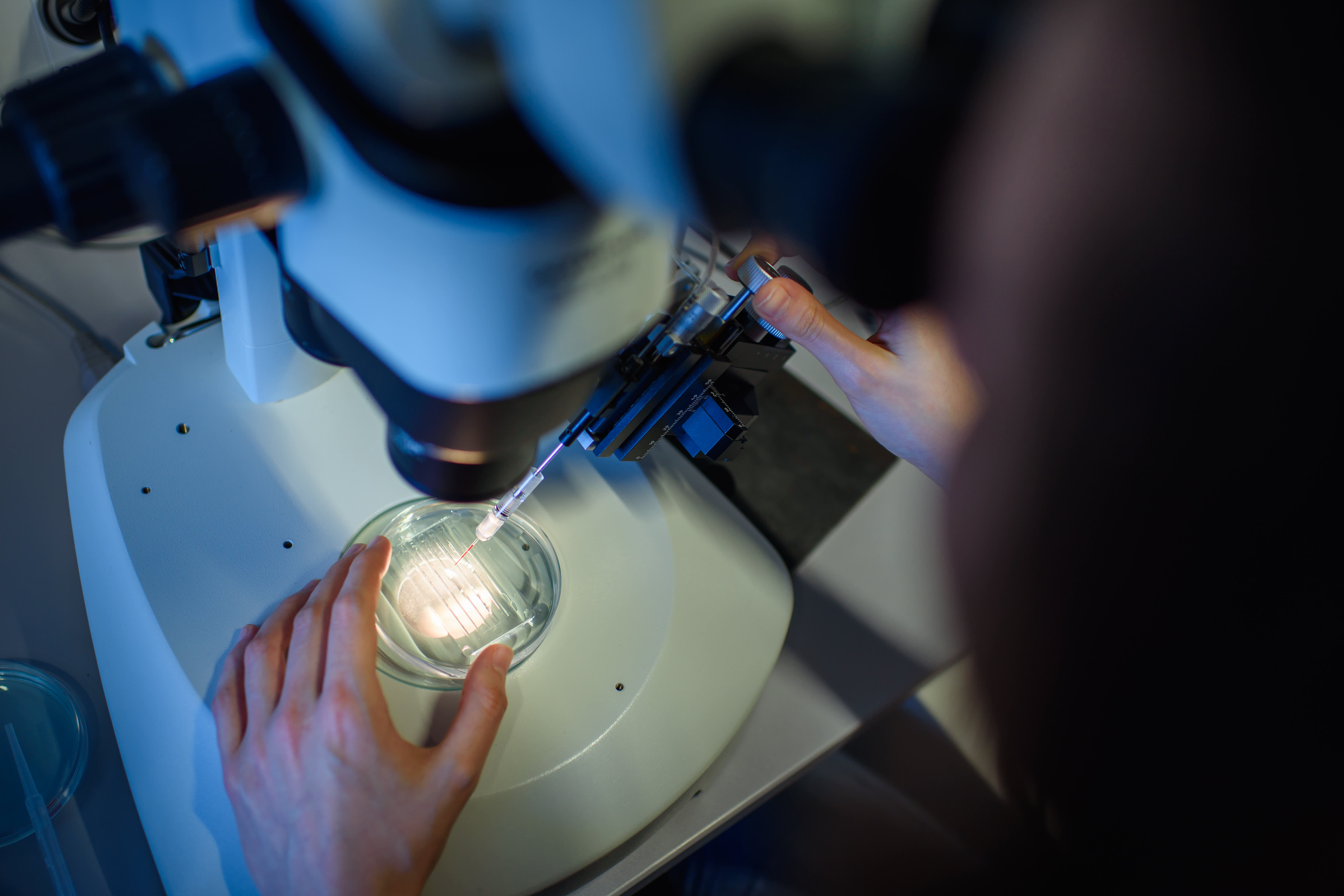
Following a breakthrough trial where gene-editing technology CRISPR completed its first systematic delivery as medicine to a human body, Intellia Therapeutics CEO John Leonard said he hopes the gene therapy could be made available to patients "very, very soon."
"These approaches are subjected to the standard sorts of clinical trials that any drug or gene therapy would be studied under, so we're in the earlier stages of that," Leonard said on CNBC's "Closing Bell" on Thursday afternoon.
He added that over the next few years, the company expect the medical technology to be subjected to standard reviews, "but our hope is that this will be available to patients very, very soon."
CRISPR, or clustered regularly interspaced short palindromic repeats, effectively cuts genomes and slices DNA to treat genetic diseases.
The latest development, the result of a trial between Intellia and biotech company Regeneron, treated a rare disease after being given as an IV infusion. Previously, other applications of the CRISPR technology had been limited to ex vivo therapy, or where cells are removed from the body for genetic manipulation in a laboratory and then reintroduced to the body.
"What's particularly exciting about that is we were able to completely inactivate that gene and see that in the clinical effects of the patient, so a major advance in the gene editing space," Leonard said.
Heart, diabetes and broad disease implications
CRISPR has broad applications, and Leonard said there is a lot of work being done to target some of the most common diseases and causes of death, such as heart disease and diabetes.
"The challenge is getting into those particular genes that cause disease, so we started in the liver, which is an area where there are many problems with disease-causing genes, and it's been shown that we can reach that very, very successfully," Leonard said. "There's other tissues after that that we're pursuing, especially the bone marrow, where a long list of blood-borne-type diseases can be addressed."
A key for CRISPR is targeting diseases that are monogenic, or caused by one particular gene, allowing this type of gene-editing therapy to be successful, Leonard said. Other diseases that are polygenic, such a cancers or autoimmune diseases, will be "more difficult to tackle," he added.
The new treatment is still in the early stages and it has not been priced yet, but as it develops, Leonard said he believes it will be "very valuable for patients and probably resource sparing for the health care system overall."
"It really comes down to the some of the advantages with single application where literally it's a one-and-done therapy," Leonard said. "We expect over time this will be generally very, very favorable in the economics of this entire field."
Jennifer Doudna, who was awarded the 2020 Nobel Prize in chemistry for her work on CRISPR gene editing and is the co-founder of Intellia, recently told the CNBC Evolve Global Summit that cost is a significant challenge, and in the case of sickle cell anemia, where CRISPR has had early success, treatment can still be $2 million.
"That is clearly not a price point that will make this available to most people that can benefit from it," she said. Innovations in delivery of CRISPR may help lower cost, but Doudna also said that the medical field needs to figure out how to "scale the molecule production so that we reduce costs."
She told CNBC the evolution of the technology from the publication of her early work to clinical trials showing it to be effective in treating diseases in less than 10 years represents, "One of the fastest rollouts I think of technology from the fundamental, initial science to an actual application."
"It's largely because the technology comes at a moment when there's enormous demand for genome editing, as well as a lot of knowledge about genomes," Doudna said.
Business - Latest - Google News
July 02, 2021 at 09:45PM
https://ift.tt/2UgQRZK
CRISPR gene-editing treatment could reach patients ‘very, very soon’: Intellia CEO - CNBC
Business - Latest - Google News
https://ift.tt/2Rx7A4Y
Bagikan Berita Ini














0 Response to "CRISPR gene-editing treatment could reach patients ‘very, very soon’: Intellia CEO - CNBC"
Post a Comment